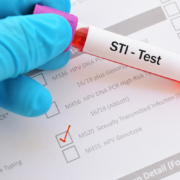The Truth About Infections During Pregnancy: What Every Mom-to-Be Needs to Know
You’re expecting—congratulations! For some women, pregnancy is an exciting time full of magic and wonder. For others —and let’s face it, for most women — pregnancy also brings up questions and worries, including infections during pregnancy.
As your body goes through pregnancy changes, your immunity is lowered, making you more prone to infections. The good news is most common infections during pregnancy are harmless. But some — especially if left untreated — can be dangerous. The key is knowing which infections are most likely, how they can affect you and your baby, and what you can do to prevent them.
In this article, we’ll walk you through the truth about infections during pregnancy—what’s normal, what’s not, and when you need to call your doctor. Arming yourself with the facts will help you have a happy, healthy pregnancy.
Most Common Infections During Pregnancy
The most common infections are urinary tract infections, yeast infections, and bacterial vaginosis (BV).
Talk to your women’s physician or OBGYN provider right away about any concerns. Prevention, early detection and proper treatment of infections will help ensure you both stay as healthy as possible. Some infections can also be prevented with vaccinations.
Urinary Tract Infections (UTIs) During Pregnancy
Pregnancy already puts enough stress on your body — you don’t need an infection on top of it. Unfortunately, urinary tract infections (UTIs) are common during pregnancy for a few reasons. As your uterus grows, it puts pressure on your bladder and ureter, making it easier for bacteria to travel up the urinary tract. Hormone changes also slow the flow of urine, giving bacteria more time to grow.
UTI Symptoms
Some signs you may have a UTI during pregnancy include:
- Needing to pee frequently, even when just a little comes out
- A burning feeling when you pee
- Lower abdominal pain or pressure
- Cloudy, foul-smelling, or bloody urine
If you experience these symptoms, see your doctor right away for a urine test. Left untreated, a UTI can lead to a kidney infection and potentially preterm labor.
UTI Treatment and Prevention
Your doctor will likely prescribe a course of oral antibiotics that are safe during pregnancy to clear the infection. Be sure to take the full course of medication as prescribed to avoid the infection coming back.
To help prevent future UTIs:
- Drink plenty of water to flush out your urinary tract. Six to eight glasses a day is a good target.
- Urinate when you feel the need. Don’t hold it.
- Wipe from front to back after using the bathroom.
- Take showers. If you prefer a bath, rinse with clean water after washing and avoid sitting in soapy water.
- Wear cotton underwear and avoid tight-fitting clothes that can trap moisture. (Sorry, yoga pants!)
While inconvenient, UTIs are usually not dangerous if caught and treated early. By understanding the signs and taking preventive steps, you can avoid complications.
Vaginal Infections During Pregnancy
Vaginal infections are common during pregnancy and nothing to be ashamed of. The normal changes in your body can make you more susceptible, but the good news is most are easily treatable.
Yeast Infections
The most common vaginal infection is a yeast infection, caused by a fungus. You may notice a thick, white discharge, intense itching, and irritation around the vagina. Yeast infections are usually treated with over-the-counter (OTC) antifungal creams. However, during pregnancy, you’ll need a prescription medication, as some OTC treatments may be unsafe. Oral fluconazole is often used and considered safe for most women in the second and third trimesters.
Bacterial Vaginosis
Another common infection is bacterial vaginosis (BV), caused by an overgrowth of normal bacteria in the vagina. Symptoms include a thin, white or gray discharge, fishy odor, irritation, and itching. BV is treated with oral antibiotics, typically metronidazole. Left untreated, BV may lead to complications, so see your doctor right away if you notice symptoms.
While uncomfortable, neither yeast infections nor BV will harm your baby.
Sexually Transmitted Infections (STIs) in Pregnancy
Sexually transmitted infections (STIs) during pregnancy require close monitoring and treatment. As an expectant mom, you’ll be screened for some of the most common STIs, such as syphilis, HIV, hepatitis B, chlamydia and gonorrhea. If detected and treated early, most STIs won’t harm your baby. However, some STIs can be passed to your baby during pregnancy or childbirth if left untreated. There are potential serious consequences for your baby.
Syphilis
Syphilis is an STI caused by bacteria. If untreated, it can cause serious health issues for you and your baby. The good news is syphilis can be cured with antibiotics. You’ll be tested for syphilis during your first prenatal visit. If detected and treated, there’s little risk to your baby. However, without treatment, syphilis can lead to premature birth, stillbirth or birth defects. There has been an increase in cases of syphilis in Wisconsin. Your doctor may recommend retesting for syphilis at 28 weeks and when you are in labor.
HIV
HIV, or human immunodeficiency virus, is a serious but manageable infection. Fortunately, with proper treatment and care, the risk of transmitting HIV to your baby can be very low. You’ll be offered an HIV test in your prenatal visit. If it is positive, your OBYGN will refer you to an expert who can discuss treatment options to keep you and your baby healthy. Be sure to follow your doctor’s recommended treatment plan.
Hepatitis B
Hepatitis B is a liver infection caused by a virus. If you test positive for hepatitis B, your baby will receive vaccinations and treatment to help prevent infection. Work closely with your doctor to monitor your hepatitis B levels during pregnancy and make a plan to reduce risks to your baby.
The most important thing is not to panic if you test positive for an STI during pregnancy. With prompt diagnosis and treatment, the risks to you and your baby can be minimized. Be open and honest with your doctor about any concerns you have regarding STIs or possible exposure.
Gonorrhea and chlamydia can be passed to the baby during birth. It is important to test and treat for these infections if detected.
TORCH Infections During Pregnancy
You may have heard of “TORCH” infections—they should be on every pregnant woman’s radar. TORCH stands for toxoplasmosis, rubella, cytomegalovirus (CMV), and herpes. They are all infections that can be passed from mother to baby during pregnancy and cause serious health issues.
Cytomegalovirus (CMV)
CMV is a common virus in the herpes family that often causes few or no symptoms in adults. However, if a woman contracts CMV for the first time during pregnancy, it may be transmitted to the baby. It could potentially cause hearing loss, vision problems, and developmental delays. Unfortunately, there is no vaccine for CMV, so prevention is key. Practice good hygiene like washing your hands frequently and avoiding contact with the saliva or urine of young children. If CMV is detected during pregnancy, your OBGYN will request additional ultrasounds to monitor the baby’s growth and development.
Toxoplasmosis
Toxoplasmosis is an infection caused by a parasite found in cat feces. Pregnant women can contract it by cleaning a cat’s litter box, gardening, or by ingestion of undercooked meat or unpasteurized milk. To avoid toxoplasmosis, have someone else change the litter box during pregnancy. Always wear gloves when gardening. Avoid ingestion of unpasteurized milk and undercooked meats. If toxoplasmosis is caught early, a short course of antibiotics can help prevent transmission to the baby. However, toxoplasmosis acquired early in pregnancy poses the greatest risk, so prevention is best.
Other TORCH infections like rubella (German measles) and herpes can also be harmful during pregnancy. If you experience symptoms like fever, rash, or genital lesions (sores), be sure to talk about them with your OBGYN. We can help reduce the risks to your baby with prompt diagnosis and treatment.
Staying Healthy During Pregnancy
Taking some simple precautions can help you avoid many of these common infections.
Practice good hygiene
One of the best ways to avoid infections during pregnancy is through good hygiene.
- Wash your hands frequently, especially after using the bathroom or touching raw meat.
- Wipe from front to back when using the bathroom to avoid spreading bacteria.
- Drink plenty of water.
Be cautious with cats
Stay away from cat feces, as toxoplasmosis infection can be passed to your baby. Have someone else change the litter box during your pregnancy or wear gloves if you must do it yourself.
Also, avoid unwashed vegetables and undercooked meat, which may contain toxoplasma parasites.
Get tested
Ask your doctor about being tested for STIs like chlamydia, gonorrhea and syphilis. Left untreated, these infections can harm your baby. Get vaccinated for the flu and whooping cough, and ask about the Tdap and flu vaccines. Some viral infections like CMV often cause no symptoms, so talk to your doctor about testing if you’re at high risk.
Monitor symptoms
See your doctor right away if you notice symptoms like frequent urination, abdominal pain, foul-smelling discharge or fever. While infections are common during pregnancy, early diagnosis and treatment are key. Don’t delay if something feels off.
By taking good care of yourself, avoiding harmful exposures and watching for signs of infection, you can lower risks to yourself and your baby.
 Dr. Dickmeyer has been providing healthcare for women in the Madison area since 1998 and is a founding member of Madison Women’s Health. Her specialties include minimally invasive surgical techniques, high and low risk obstetrics, pelvic floor disorders and postmenopausal medicine.
Dr. Dickmeyer has been providing healthcare for women in the Madison area since 1998 and is a founding member of Madison Women’s Health. Her specialties include minimally invasive surgical techniques, high and low risk obstetrics, pelvic floor disorders and postmenopausal medicine.










